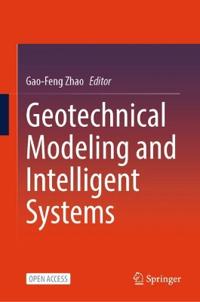Stort sommersalg på pocket »

Geotechnical Modeling and Intelligent Systems
This open access book provides insights into research topics related to geotechnical engineering simulations. With the development of computing power and artificial intelligence, research methods in geotechnical engineering are gradually shifting from field surveys and physical experiments toward simulation and prediction. Through simulations, it is possible to infer the impact of engineering structures on soil and rock masses, as well as their response to natural disasters such as earthquakes, landslides, and debris flows, allowing for early planning of mitigation measures.
Inside, readers will find cutting-edge studies on microbial soil stabilization, finite element simulations, centrifuge modeling, and machine learning applications. Topics include advanced material characterization, predictive modeling of tunnels and slopes, AI-enhanced monitoring systems, and risk mitigation strategies for deep excavations and mining subsidence. These contributions illustrate how intelligent systems are optimizing both design and safety across a wide range of geotechnical scenarios.
This volume is an essential resource for researchers, engineers, and graduate students seeking to leverage intelligent technologies for more efficient, accurate, and resilient geotechnical solutions. With its integration of theory, experimentation, and smart modeling, it offers a forward-looking perspective on the future of infrastructure in a rapidly evolving technological landscape.













